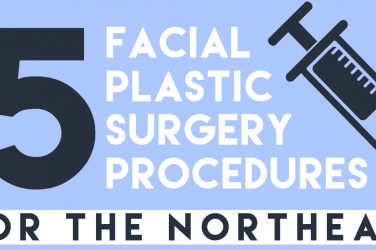Travelling the world offers unparalleled experiences, but it also exposes you to various health risks unique to each region. Understanding and preparing for these risks is crucial for a safe and enjoyable journey. In this guide, we will explore region-specific health precautions and how the Copperfield Travel Clinic can help you stay healthy on your adventures.
Why Region-Specific Health Precautions Matter
Different regions around the world present unique health challenges. These can range from infectious diseases to environmental hazards. Taking region-specific health precautions ensures that you are protected against illnesses that are prevalent in your travel destination. Proper preparation can prevent serious health issues and provide peace of mind, allowing you to fully enjoy your travels.
Preparing for Your Trip
Before embarking on your journey, it’s essential to consult with a travel health expert. The Copperfield Travel Clinic offers comprehensive services to help you prepare for international travel. They provide vaccinations, health advice, and preventive measures tailored to your specific destination. Here’s an overview of health precautions for various regions:
Asia
Common Health Risks
Mosquito-Borne Diseases: Dengue fever, malaria, and Japanese encephalitis are prevalent in many parts of Asia.
Food and Waterborne Illnesses: Traveller’s diarrhea, typhoid fever, and hepatitis A are common due to contaminated food and water.
Recommended Precautions
Vaccinations: Hepatitis A, typhoid, Japanese encephalitis, and, depending on your travel plans, rabies.
Mosquito Protection: Use insect repellent, wear long sleeves and pants, and sleep under mosquito nets.
Food and Water Safety: Drink bottled or boiled water, eat at reputable establishments, and avoid street food.
Africa
Common Health Risks
Mosquito-Borne Diseases: Malaria is a significant concern, along with yellow fever in certain areas.
Vaccine-Preventable Diseases: Meningococcal meningitis is prevalent in the meningitis belt, and hepatitis A is common.
Recommended Precautions
Vaccinations: Yellow fever, hepatitis A, meningococcal vaccine, and malaria prophylaxis.
Mosquito Protection: Similar to Asia, with the addition of sleeping in air-conditioned rooms when possible.
General Health Tips: Be cautious of water and food hygiene, and avoid swimming in freshwater bodies that may carry schistosomiasis.
South America
Common Health Risks
Mosquito-Borne Diseases: Dengue, malaria, and yellow fever.
Food and Waterborne Illnesses: Hepatitis A, typhoid, and traveller’s diarrhea are common.
Recommended Precautions
Vaccinations: Yellow fever, hepatitis A, typhoid, and malaria prophylaxis if visiting endemic areas.
Mosquito Protection: Use repellent and wear protective clothing.
Food and Water Safety: Stick to bottled water and well-cooked food, and avoid raw or undercooked seafood.
Europe
Common Health Risks
Tick-Borne Diseases: Lyme disease and tick-borne encephalitis in forested areas.
General Illnesses: Hepatitis A can still be a concern in some parts.
Recommended Precautions
Vaccinations: Hepatitis A and tick-borne encephalitis for those spending a lot of time outdoors in rural areas.
Tick Protection: Use insect repellent and perform regular tick checks after outdoor activities.
General Health Tips: Maintain good hygiene and be cautious with food and water in less developed areas.
North America
Common Health Risks
Mosquito-Borne Diseases: West Nile virus in certain areas.
Tick-Borne Diseases: Lyme disease in forested and grassy areas.
Recommended Precautions
Vaccinations: Routine vaccinations are generally sufficient, but check for specific outbreaks or travel advisories.
Insect Protection: Use repellent, wear long clothing, and check for ticks after outdoor activities.
General Health Tips: Follow standard food and water safety practices.
The Role of Copperfield Travel Clinic
Copperfield Travel Clinic provides vital services to help travellers prepare for their journeys. With a team of experienced healthcare professionals, the clinic offers:
Personalized Health Consultations
Tailored advice based on your travel itinerary, health status, and specific risks associated with your destination.
Comprehensive Vaccination Services
Administration of essential vaccines, including those for yellow fever, hepatitis A, typhoid, and more.
Preventive Measures and Advice
Guidance on mosquito protection, food and water safety, and other preventive measures to avoid illness.
Post-Travel Health Support
If you feel unwell after returning from your trip, the clinic can help diagnose and treat travel-related illnesses.
Conclusion
Travelling to different parts of the world can expose you to a variety of health risks. By taking region-specific health precautions and consulting with experts at Copperfield Travel Clinic, you can safeguard your health and enjoy your travels with confidence. Whether you are exploring the bustling cities of Asia, the wild savannas of Africa, or the historical landscapes of Europe, being prepared is key to a safe and memorable journey.







